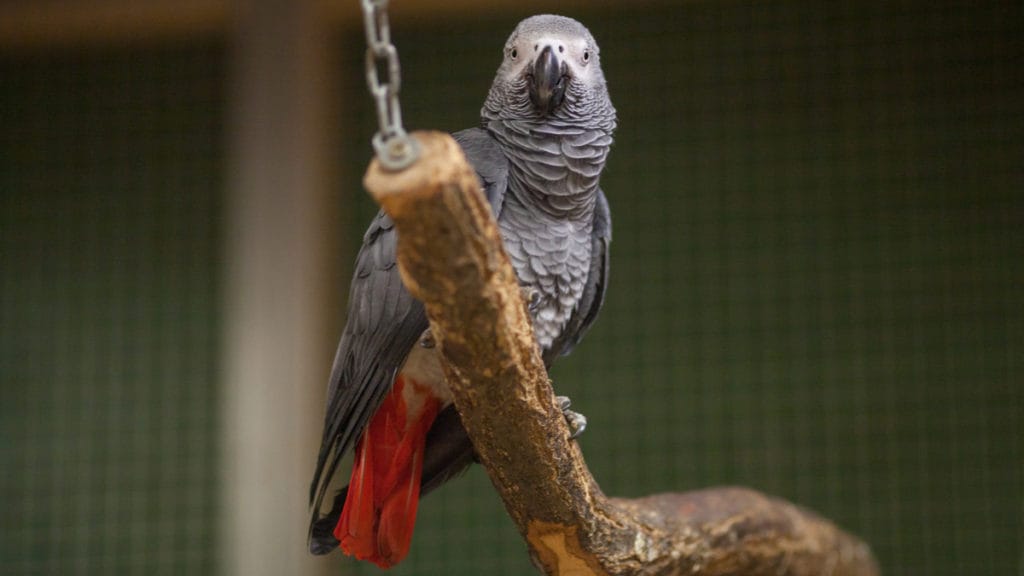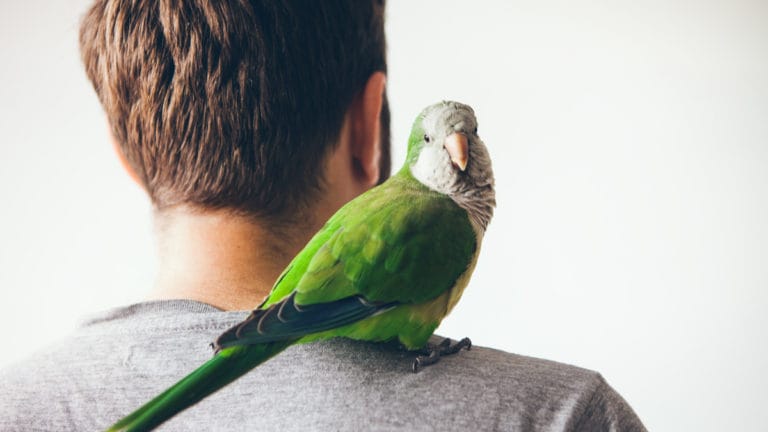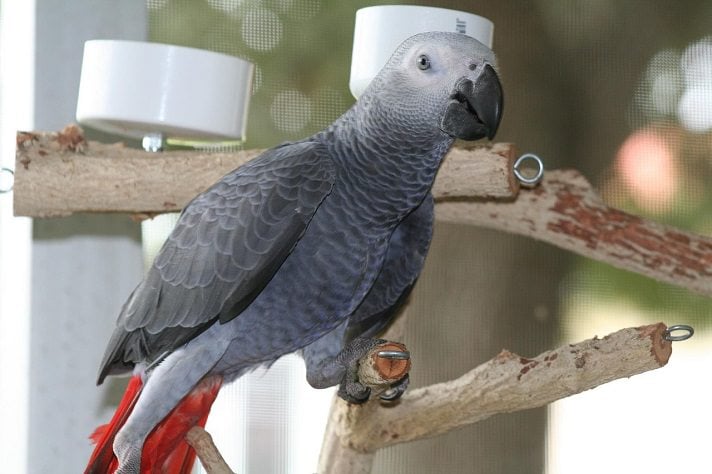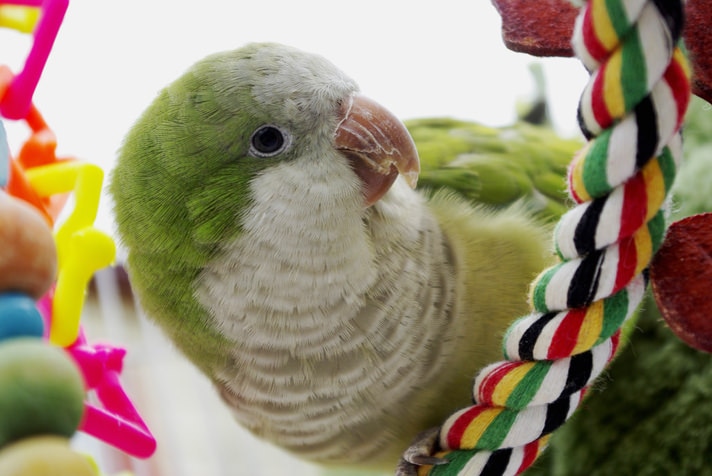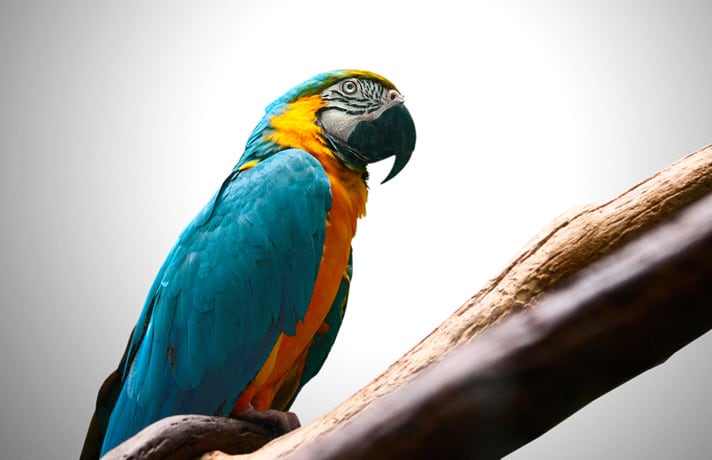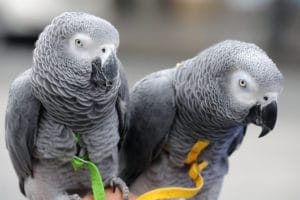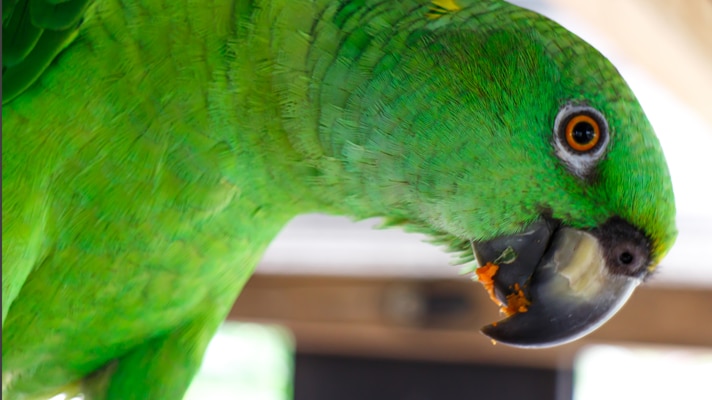Unless you’ve had your head in the um “clouds” recently, you’ve no doubt aware that an increasing number of cities and states have moved ahead with legislation to legalize or decriminalize marijuana for medical or recreational use.
According to the public information nonprofit ProCon.org, which has created a chart of medical marijuana laws state-by-state, medical marijuana is now legal in 23 states and Washington, D.C. This November, Alaska, Oregon and Washington, D.C. joined Colorado and Washington State when ballot measures passed to allow the sale and use of recreational marijuana.
The increase in availability of legal marijuana has legal, health and medical implications for pet birds and their owners.
Although there is not yet extensive research available on the specific effects of marijuana smoke on pet birds, Veterinarian Cassee Terry of Redmond, Oregon cautions that the effects could be severe. “Birds are much more sensitive to smoke inhalation toxicity than other animals,” she explained. Generally, Terry observed, “lung toxicities are more severe,” in birds.
There are several reasons for this. Birds have very efficient respiratory systems, which means that with each breath, birds extract much more air particulates than humans. In addition, birds breathe at an increased rate compared to humans, so airborne toxins such as smoke will have an increased impact on birds. Bird anatomy also plays a role.
In addition to their lungs, “birds have a system of air sacs,” explained Megan Jones, a researcher in bird behavior at Florida State University, “so when they inhale, the air goes first into the posterior air sacs, then into the lungs when they exhale.” But that breath remains in the bird, Jones explained, for yet another breath. The air travels “then through the lungs to the anterior air sacs on the second inhale, and is exhaled out of the body on the second exhale.”
Exposure to second-hand smoke of any kind, even from kitchens, can have negative health consequences for pet birds. Repeated exposure can cause skin and eye irritation and infection, respiratory infections and chronic respiratory disease. Birds can develop symptoms such as coughing, sneezing, sinus and eye infections, and these may lead to secondary bacterial infections which may even be fatal.
How Marijuana Can Affect Pet Birds
Peer-reviewed studies have not yet been published on the effects of so-called “edibles,” or edible products infused with THC oil, on birds. However, a recent study on songbirds at Oregon Health Science University demonstrates that alcohol affects birds, which metabolize it differently than humans but experience similar “drunken” effects. You can hear from the recordings of drunken zebra finches in this story by National Public Radio, that alcohol affected the bird’ singing in the same way it slurs human speech.
Because all species of animals process different chemicals differently, don’t assume that you can accurately determine how much of a cannabis edible product a bird could safely ingest based merely on its weight as compared to your own. In addition, effects such as distortions of balance and the senses, which humans might experience as a pleasurable “buzz” can be uncomfortable, disorienting and even frightening for animals.
Terry cautioned, that in general, “The effects last longer when ingested than smoked, in birds and other species.” Therefore, even if a small amount of edible marijuana did not prove fatal or cause illness, a bird could experience any unsettling effects for longer if exposed to an edible product.
Some ingestion of marijuana by pets occurs by accident, through exposure to second-hand smoke, or when a pet raids its owner’s unattended stash of marijuana or edible products.
A 2012 study published in the Journal of Veterinary Emergency and Critical care found the number of marijuana poisoning cases in dogs at two Colorado veterinary hospitals quadrupled in five years following the legalization of medical marijuana. This increase, though shocking, covered the period before Colorado legalized recreational marijuana.
Veterinarians generally encourage pet owners to honestly report whatever substance the pet has ingested in order to render the proper treatment and save the animal’s life.
The Legal Ramifications For Exposing Your Pet Bird To Marijuana
Warning: Several of the following links reference news items that discuss animal cruelty cases.
Although there are some reports of pet owners attempting to treat their pet’s diseases with marijuana, many anecdotal reports of bird exposure to marijuana appear to result from the owner’s own use when their diminished judgment leads them, or their friends, to feed marijuana or its by-products (such as bong-water) to pets or blow smoke in their faces to see their response.
Before intentionally administering marijuana to your bird, either medicinally or in fun, you should be aware that there could be legal consequences for you. Intentionally subjecting your pet to the effects of marijuana could be viewed as animal abuse or cruelty in some states. Twenty-nine states have laws either requiring or permitting veterinarians to report animal neglect, cruelty, or abuse to authorities.
Although there are numerous examples on social media of people intentionally getting their birds high, some people who intentionally expose their pets to this drug are prosecuted. You should make yourself aware of criminal drug laws and animal abuse and cruelty laws in your state. As you could be held legally responsible for actions that are seen by authorities as animal cruelty or abuse, you should make it clear to your friends that any acts which might be illegal or harmful to your bird’s health are unacceptable.
To reduce the temptation for your friends to do something irresponsible, you should keep your bird in a separate room, away from potentially toxic fumes, in an area not connected by shared ventilation systems. If your bird does inhale smoke or consume marijuana products and becomes ill, taking prompt action to save her, like bringing her to a vet, could still be seen as a mitigating factor in your favor.
Even in states where medical marijuana is approved for human use, veterinarians are not permitted to prescribe it for animals. According to an article on the American Veterinary Medical Association website, which explores the medical marijuana debate in veterinary circles, “Physicians in states where medical marijuana is sanctioned are exempt from prosecution by the state for recommending the schedule I drug to patients. Such protections do not apply to veterinarians, for whom it is illegal in every state to prescribe or recommend marijuana to treat a patient.”
Some people are nonetheless using marijuana, usually in edible form, to treat chronic pain and illness in their pets. However, due to the lack of available medical research, dosage and administration is often a matter of guesswork.
For bird owners, in addition to moral and ethical considerations, there may be criminal consequences for administering marijuana to your bird.
How Marijuana Use Impacts Birds In The Wild
Beyond the consequences for pet parrots within the United States, marijuana legalization stands to impact parrots in other parts of the world as well. As US states have begun to legalize it, Latin American nations have started to question the necessity of combatting marijuana cultivation and consumption within their own borders.
At a 2010 summit on the issue, leaders from Colombia, Costa Rica, Guatemala, Honduras, Mexico, Panama, Nicaragua and the Dominican Republic, Colombian president Juan Manuel Santos issued a declaration stating that the United States “cannot support the criminalization of these activities in this or that country and, at the same time, [support] the open or veiled legalization of the production and consumption of drugs in its own territories.’
Latin American countries such as Colombia are home to thousands of bird species and act as host to thousands more migratory birds throughout the year. Although increased recreational use and legal cultivation in Alaska, Colorado, Washington and Oregon will not have a significant impact on wild parrot species, legalization in tropical habitats would have more far-reaching effects.
We’ll take a closer look at the effects of drug cultivation on birds, bird conservation projects and bird research in Latin America in the next article in this two-part series.
Posted by: Chewy Editorial
Featured Image: Oleksandr Dudnyk/Shutterstock.com
Share:
